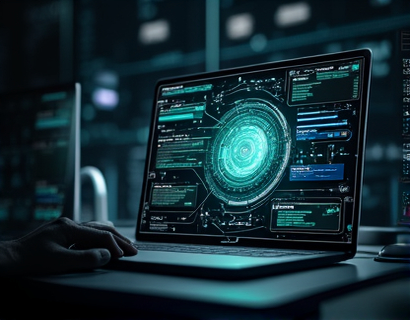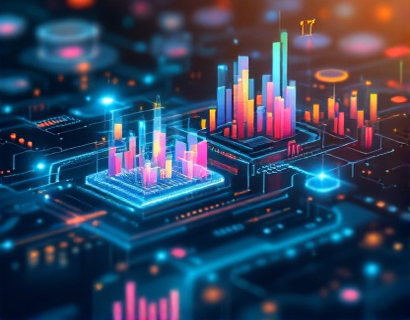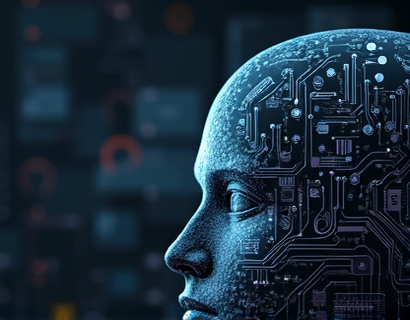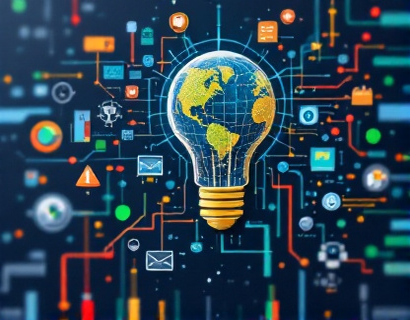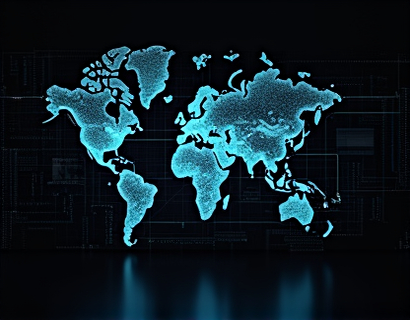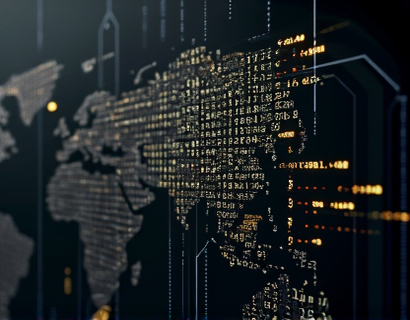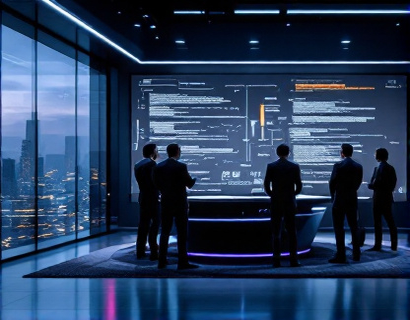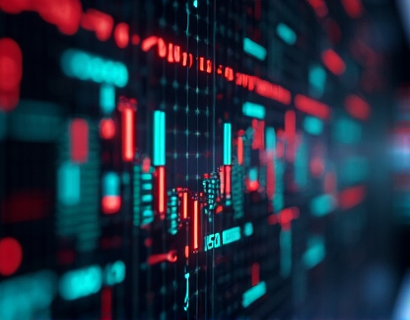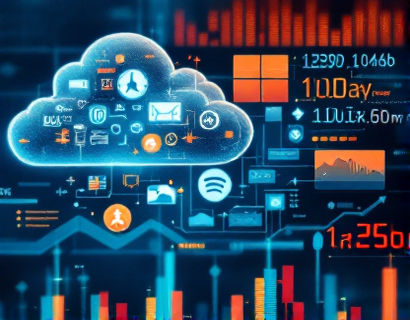Unlocking Next-Gen Productivity: The Synergy of AI and Crypto
The intersection of artificial intelligence and cryptocurrency is giving rise to transformative technologies that are redefining productivity and task management in the modern digital landscape. This article delves into how these advanced digital innovations are not only enhancing task efficiency but also paving the way for a future where seamless integration of AI and crypto powers unprecedented work capabilities.
Redefining Efficiency with AI
Artificial intelligence has evolved from a niche field to a cornerstone of modern technology, impacting various sectors including business, healthcare, and education. In the context of productivity and task management, AI offers sophisticated tools that automate routine tasks, provide intelligent insights, and optimize workflows. Machine learning algorithms can analyze vast amounts of data to identify patterns and predict outcomes, enabling users to make informed decisions swiftly and accurately.
One of the key areas where AI shines is in automating repetitive tasks. By leveraging natural language processing and robotic process automation, AI can handle tasks such as data entry, scheduling, and even complex decision-making processes. This automation not only saves time but also reduces the likelihood of human error, thereby increasing overall efficiency. For instance, AI-driven virtual assistants can manage calendars, prioritize tasks, and even draft emails, allowing professionals to focus on higher-value activities.
Enhancing Task Management with AI
Task management is a critical aspect of productivity, and AI is revolutionizing how tasks are organized and executed. Advanced AI algorithms can predict task priorities based on historical data and real-time inputs, ensuring that the most critical tasks are addressed first. These algorithms can also integrate with various productivity tools, creating a cohesive ecosystem that streamlines workflows. For example, AI can sync task lists across multiple devices, ensuring that users have access to their tasks no matter where they are.
Moreover, AI-powered project management tools can provide real-time updates on project progress, identify bottlenecks, and suggest optimizations. These tools use predictive analytics to forecast project timelines and resource allocation, helping managers to allocate resources more effectively and meet deadlines consistently. The ability to visualize project status through intuitive dashboards further enhances decision-making and collaboration among team members.
Cryptocurrency: A New Paradigm for Digital Transactions
Cryptocurrency, with its decentralized and secure nature, is transforming the way digital transactions are conducted. Unlike traditional currencies, cryptocurrencies operate on blockchain technology, which ensures transparency, immutability, and security. This technology has the potential to revolutionize various industries, including finance, supply chain, and even task management.
In the context of productivity, cryptocurrency can facilitate seamless and secure transactions for services and products offered through digital platforms. For instance, freelancers can receive payments instantly and securely without the need for intermediaries, reducing transaction fees and processing times. This direct and transparent payment system fosters trust and encourages more people to engage in digital economies.
Integrating AI and Crypto for Enhanced Productivity
The true power of AI and cryptocurrency is realized when they are combined to create advanced digital solutions. By integrating AI with blockchain technology, developers can build platforms that not only automate tasks but also ensure secure and transparent transactions. These platforms can offer a range of services, from smart contracts that execute tasks based on predefined conditions to decentralized marketplaces where AI-driven recommendations enhance user experience.
One of the most promising applications of AI and cryptocurrency in productivity is the development of decentralized applications (dApps). dApps leverage blockchain to create trustless environments where users can collaborate and transact without central authorities. AI can enhance these dApps by providing intelligent recommendations, automating routine tasks, and ensuring that transactions are processed efficiently and securely. For example, a decentralized task marketplace could use AI to match workers with projects based on skill sets and availability, while ensuring that payments are handled through secure smart contracts.
Smart Contracts: Automating Task Execution
Smart contracts are self-executing contracts with the terms of the agreement directly written into code. They run on blockchain networks and automatically enforce and execute the terms of the contract when predefined conditions are met. In the realm of productivity, smart contracts can automate various aspects of task management, from assigning tasks to verifying completion and issuing payments.
For instance, a smart contract can be programmed to assign a task to a specific worker once a project manager approves it. Once the worker completes the task and submits proof of completion, the smart contract can automatically release the payment to the worker. This process eliminates the need for intermediaries, reduces delays, and ensures that all parties adhere to the agreed terms. The transparency of blockchain ensures that all transactions are recorded and verifiable, adding an extra layer of trust to the system.
Decentralized Identity and Access Management
Another critical area where AI and cryptocurrency intersect is in decentralized identity and access management. Traditional identity verification processes are often centralized, vulnerable to breaches, and cumbersome. By using blockchain-based identity solutions, users can have control over their digital identities, ensuring privacy and security. AI can enhance these solutions by providing advanced biometric verification and behavior analysis to prevent unauthorized access.
In a productivity context, decentralized identity management can streamline access to various tools and platforms. Users can authenticate themselves once and gain secure access to multiple services without the need for multiple passwords or repeated verification processes. This not only enhances security but also improves the user experience by reducing friction.
Enhanced Collaboration through Decentralized Platforms
Collaboration is a key component of modern productivity, and decentralized platforms powered by AI and cryptocurrency are redefining how teams work together. These platforms use blockchain to create transparent and tamper-proof records of collaboration, ensuring that all contributions are recognized and rewarded appropriately. AI can further enhance collaboration by providing intelligent tools that facilitate communication, task assignment, and progress tracking.
For example, a decentralized collaboration platform could use AI to analyze communication patterns and suggest optimal meeting times based on team members' availability and time zones. It could also automatically assign tasks based on individual strengths and current workloads, ensuring that the team operates at maximum efficiency. The use of cryptocurrency within these platforms can incentivize participation and reward valuable contributions, fostering a more engaged and motivated team.
Future Prospects: The Next Generation of Digital Solutions
The integration of AI and cryptocurrency is just the beginning of a new era in digital productivity. As these technologies continue to evolve, we can expect even more innovative solutions that further enhance task management and overall efficiency. The potential for decentralized autonomous organizations (DAOs) is particularly exciting, as they combine the power of AI, blockchain, and community governance to create self-managing entities that can operate without traditional hierarchical structures.
In a DAO, AI can play a crucial role in decision-making processes, data analysis, and resource allocation. Members can propose and vote on initiatives, with AI providing insights and recommendations to inform these decisions. This blend of human collaboration and machine intelligence can lead to more democratic and efficient organizations.
Additionally, the rise of Web3 technologies, which build on blockchain and decentralized principles, promises to create a more open and user-centric internet. AI-driven tools within this ecosystem can personalize user experiences, optimize content delivery, and ensure secure and private interactions. The future of productivity is not just about doing more with less but about creating environments where work is more meaningful, efficient, and rewarding.
As we look ahead, the synergy between AI and cryptocurrency will continue to drive innovation, pushing the boundaries of what is possible in the digital world. By embracing these advanced technologies, individuals and organizations can unlock new levels of productivity, security, and collaboration, ultimately redefining the way we work and live.



